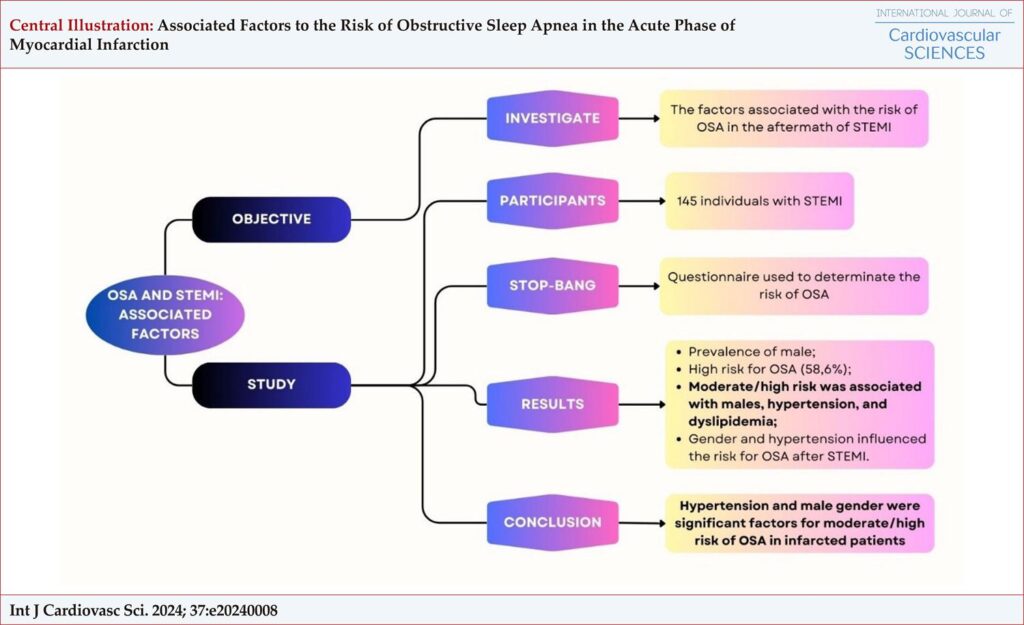International Journal of Cardiovascular Sciences. 17/jan/2025;38:e20240008.
Associated Factors to the Risk of Obstructive Sleep Apnea in the Acute Phase of Myocardial Infarction
Este Artigo Original é referido pelo Editorial "Obstructive Sleep Apnea in Acute Myocardial Infarction: A Prognostic Risk Factor beyond Traditional Players?".
Abstract
Background
Obstructive sleep apnea (OSA) promotes endothelial dysfunction and systemic inflammation, and it is associated with shorter long-term survival and unfavorable clinical outcomes in patients with ST-segment elevation myocardial infarction (STEMI).
Objectives
To investigate the factors associated with the risk of OSA in the aftermath of STEMI.
Methods
A cross-sectional, quantitative study conducted with 145 individuals with STEMI in a large Brazilian teaching hospital. Anthropometric measurements were performed in addition to collecting sociodemographic/clinical data and lifestyle habits. The STOP-BANG questionnaire was used to determine the risk of OSA. The results were analyzed using descriptive statistics, association tests, and logistic regression. A significance level of 5% was adopted for the statistical analysis.
Results
The mean age of the participants was 62 ± 12 years, with a predominance of males (71%), white individuals (57.2%), and those at high risk of OSA (58.6%). Moderate to high risk of OSA was associated with male gender, hypertension, and dyslipidemia. Gender (HR = 6.13, 95% CI [1.88, 20.03], p = 0.003) and hypertension (HR = 4.31, 95% CI [1.27, 14.63], p = 0.019) were factors influencing the risk of OSA after acute myocardial infarction.
Conclusions
Hypertension and male gender were significant factors for a moderate/high risk of OSA in infarcted patients.
Palavras-chave: Obstructive Sleep Apnea; Myocardial Infarction; Risk Factors
451

